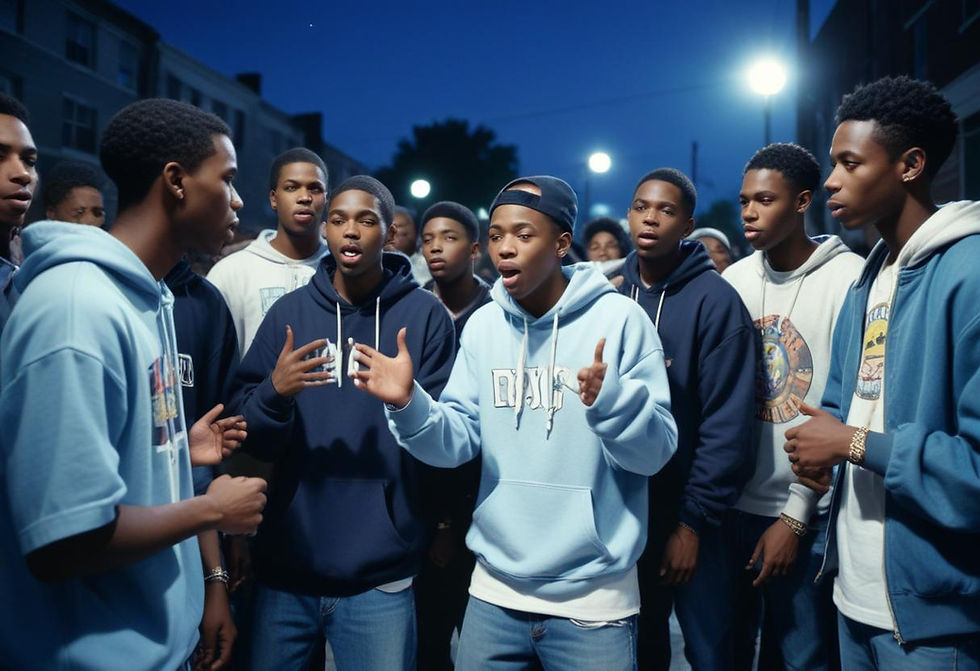How Do I Discover And Develop My Rapping Strengths?
- Poloriffic
- Jul 1, 2024
- 2 min read
Discovering and developing your rapping strengths involves a mix of self-reflection, practice, and feedback. Here’s a step-by-step guide to help you on your journey:
1. Self-Assessment
Identify Your Style: Listen to different rap artists and identify what styles resonate with you. Are you more into storytelling like Kendrick Lamar, lyrical prowess like Eminem, or the hype and energy of artists like Travis Scott?
Assess Your Skills: Take stock of your current skills. Are you strong in freestyling, writing lyrics, your flow, or your delivery? Understanding where you excel and where you need improvement is crucial.
2. Practice Regularly
Writing: Write every day. This could be full verses, choruses, or just random thoughts and rhymes. The more you write, the better you’ll get.
Freestyling: Practice freestyling regularly. It helps improve your flow, rhythm, and ability to think on your feet.
Recording: Record yourself rapping to understand how you sound. This will help you identify areas for improvement in your delivery and presence.
3. Study the Greats
Lyrics: Study the lyrics of your favorite rappers. Analyze their wordplay, metaphors, and storytelling techniques.
Flow: Pay attention to how different artists use rhythm and timing. Notice how they switch flows and adapt to different beats.
Performance: Watch live performances to understand stage presence and crowd interaction.
4. Get Feedback
Peers: Share your work with friends or other rappers and ask for honest feedback.
Online Communities: Join online forums, social media groups, or platforms like SoundCloud and Reddit to share your music and get critiques.
Mentorship: If possible, find a mentor who can provide guidance and constructive criticism.
5. Experiment and Innovate
Different Beats: Experiment with rapping over various beats to find what suits you best and to challenge yourself.
Collaborations: Work with other artists to gain new perspectives and ideas.
Genres: Don’t be afraid to mix rap with other genres to create a unique sound.
6. Stay Consistent and Persistent
Set Goals: Set short-term and long-term goals for your rap career.
Routine: Develop a routine that includes writing, practicing, and performing.
Adapt and Grow: Be open to feedback and willing to adapt your style as you grow as an artist.
7. Perform Live
Open Mics: Participate in local open mic nights to gain experience performing in front of an audience.
Local Gigs: Start performing at local venues to build your stage presence and fan base.
Social Media: Use platforms like Instagram, YouTube, and TikTok to showcase your talent and connect with a broader audience.
Resources
Books: Read books on songwriting and the history of rap to gain a deeper understanding of the craft.
Courses: Enroll in online courses or workshops focused on rap and hip-hop.
Documentaries: Watch documentaries about rap and hip-hop culture to gain insights and inspiration.
Remember, becoming a great rapper takes time, dedication, and a willingness to learn and grow. Keep pushing yourself, and don’t be afraid to take risks and step out of your comfort zone.


Comments